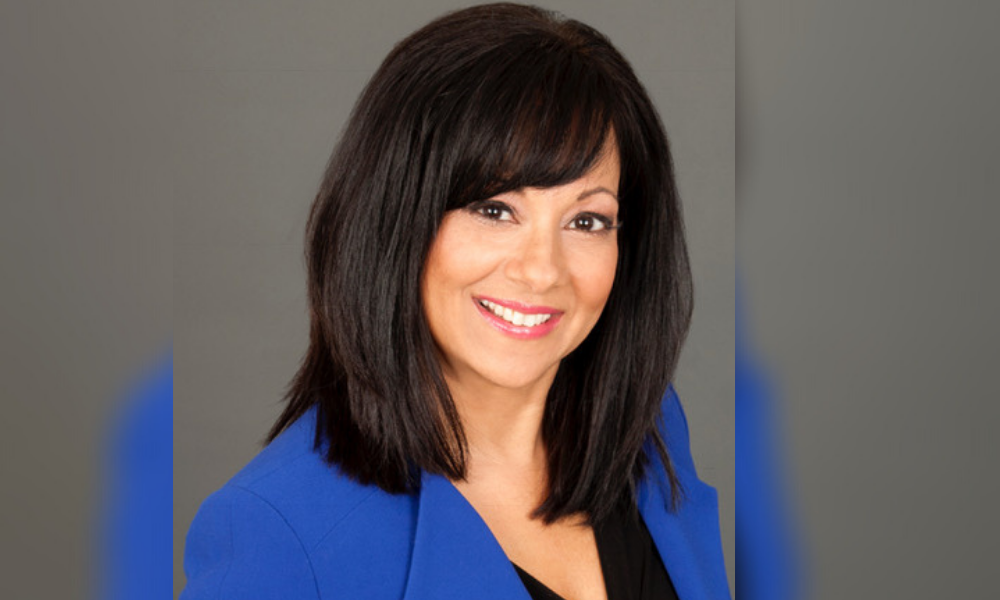Industry leader tells WP advisors are more efficient working virtually and that the future offers women huge opportunities

The global pandemic not only “shook up” the wealth management industry but also pointed to the future of advice, according to an industry leader.
Dilys D’Cruz, VP and Head of Wealth Management, Meridian Credit Union, reflected on the past 12 months and the impact it’s had on the investment world. As parts of the country once again head into lockdown, endless Zoom calls and restricted movement, she told WP that supporting Canadians through the crisis remains her advisors’ number one priority.
She believes, however, that from an industry perspective, the ramifications of COVID-19 have dragged a typically slow-to-evolve profession into a new way of working. By accepting virtual as a way of doing business, wealth management pivoted from a largely paper-based, face-to-face environment to one of digital signatures, paperless account openings and online meetings. At Meridian, D’Cruz said they simply got more efficient at servicing clients.
She said: “Advisors realized that there was a real benefit to being able to do these things remotely and from a client perspective, they embraced it. The change really pushed people out of their comfort zone to say, ‘I can actually service my clients better and more frequently because I can now offer them the opportunity to meet virtually, have a different experience, and make ourselves more accessible’. That was a huge, huge change.”
Meridian will have this remote-meeting option in its business model going forward to ensure it is always an option for clients who find it more convenient. Many people – advisors and clients – are suffering from video conferencing fatigue, however, and the learning process for firms is clearly ongoing. One big lesson D’Cruz believes has emerged from the past year, though, is the reinforcement that advisors who consistently reached out to clients grew their business. Those that didn’t, lost out.
She explained: “That is the future of the industry. It’s not about portfolio management – a product is a product is a product. The advisor that's going to be successful is the one that can build those relationships, can be on the journey with their clients through the good and bad, and help them meet all their goals, not just from a portfolio management perspective.
“The advisors that focuses on rate of return and products are the ones that are going to be the way of the dinosaur; they are not going to do well.”
D’Cruz believes the evolution of the advisor is going to be as more of a mentor and a coach. Asset allocation competency, she added, is a bare minimum and that “IQ is the table stakes, EQ is the differentiator”.
With high emotional intelligence required, she said there are huge opportunities for women advisors, who can marry that fact more women are going to be in control of wealth with their natural communication and relationship-building skills. That’s not to say one sex is better than the other, of course, but D’Cruz sees one major problem: not enough women have the confidence to pursue an advisory career.
But assuming you have the right skill set and training, having that emotional intelligence is going to make you a more successful advisor, she said.
“We only hire men and women that have that slant towards them having emotional intelligence. By that, I mean the ability to connect with people, to really listen, to really hear and to ask the right questions. You are definitely not going to be successful at Meridian if you don't have that. This just opens the doors for women to be able to explore a career that historically they were afraid to.”
It’s time to bust myths, she added, that the profession is all about math, that it’s full of aggressive white males, and that it’s not conducive to family life. To prove her point, D’Cruz told WP that about 60% of her top advisors are women, 50% of her leadership team are women, and 40% of new advisor hires are women. The latter is only lower because of a lack of suitable applicants.
“It’s not a case of women are better than men – it’s not about that," she insisted. "We need more diversity because we know that the wealth transfers are happening, so we just need better representation in the industry, especially from a business perspective.
“The bigger issue is not that we're not hiring women, it's that we aren't seeing enough people applying. It's incumbent on us to go to the right areas to recruit.”



